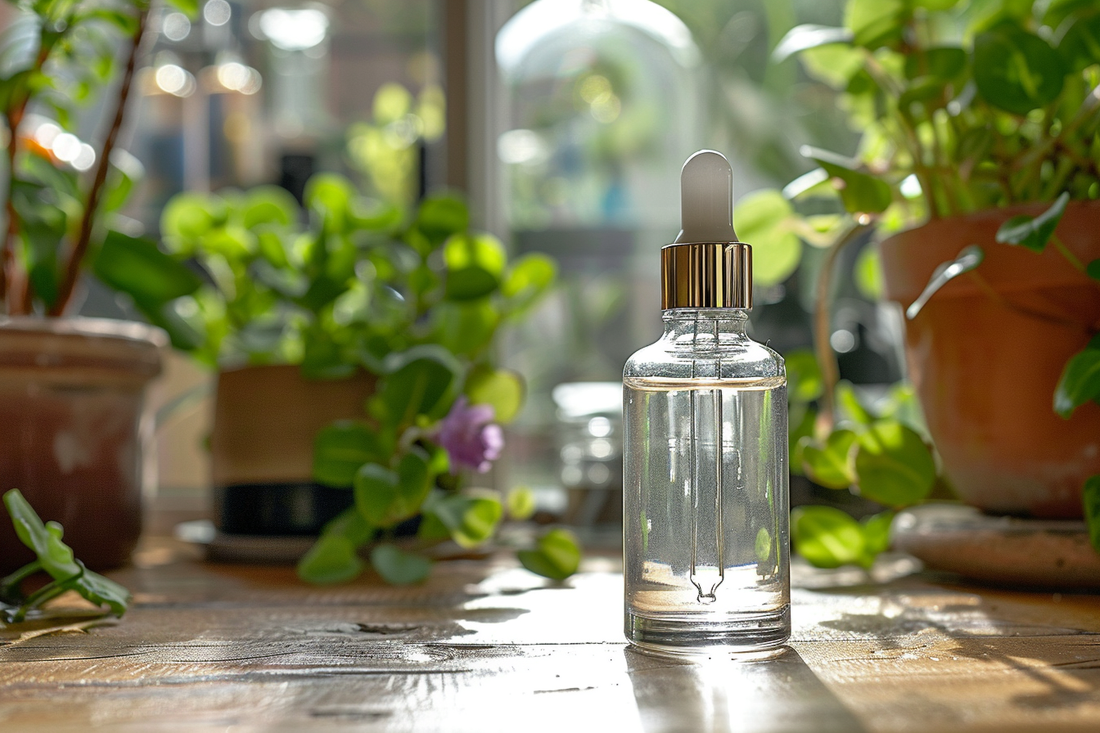
Can You Use Hyaluronic Acid During Pregnancy?
Pregnancy brings unique challenges to your skincare routine. Many soon-to-be mothers wonder about ingredient safety. Hyaluronic acid often tops the list of questions.
In this article, you'll learn about its safety, application tips, and benefits for pregnant skin. We'll also highlight ingredients to avoid and expert-backed insights for peace of mind.
Loading...
Is Hyaluronic Acid Safe During Pregnancy?
Yes, it is safe to use topical hyaluronic acid during pregnancy. It’s a naturally occurring molecule in your body, known for its water-retention abilities. Because it doesn’t penetrate deeply into your bloodstream, it poses no significant risk to your baby. Dermatologists widely regard it as pregnancy-safe, though it’s still a good idea to check with your healthcare provider before introducing new products to your routine.
What Are the Skin Benefits of Hyaluronic Acid During Pregnancy?
Pregnancy often brings hormonal changes that can make your skin drier, more sensitive, or prone to stretch marks. Hyaluronic acid (HA) helps manage these issues in several ways:
- Boosts Hydration: It attracts moisture to your skin, combating dryness effectively.
- Supports Elasticity: Improved skin flexibility can help accommodate your body’s changing shape more comfortably.
- Stretch Mark Mitigation: Keeping skin hydrated and more elastic may reduce the severity of stretch marks.
- Non-comedogenic Properties: HA won’t clog pores, making it suitable if you’re prone to pregnancy-related acne.
- Soothes Sensitivity: Its gentle nature calms irritation or reactivity caused by hormonal shifts.
How Do You Apply Hyaluronic Acid for Best Results?
To maximize its benefits, follow these steps when using hyaluronic acid:
- Use on Damp Skin: Apply it to slightly damp skin to enhance its moisture-binding effects.
- Layer with a Moisturizer: Seal in hydration with a pregnancy-safe moisturizer after applying HA.
- Perform a Patch Test: Check for irritation by testing a small area first, especially if your skin has become more sensitive.
- Use in Small Amounts: A pea-sized droplet is enough for your face, minimizing waste and irritation risks.
- Choose Quality Products: Look for formulations labeled fragrance-free and safe for sensitive or pregnant skin.
Which Forms of Hyaluronic Acid Should You Use?
Hyaluronic acid comes in different molecular weights, each serving unique purposes:
- Low Molecular Weight: Penetrates into deeper skin layers for intense hydration.
- High Molecular Weight: Remains on your skin’s surface, providing immediate moisture and a plumping effect.
- Combination Formulas: Blended products offer hydration on both levels, optimizing benefits.
What Ingredients Should You Avoid in Skincare During Pregnancy?
While hyaluronic acid is safe, steer clear of products containing these potentially harmful ingredients:
- Retinoids: These derivatives of vitamin A are not recommended during pregnancy due to possible risks to fetal development.
- Parabens: Linked to possible hormone disruption.
- High Alcohol Concentrations: These can lead to excessive dryness or irritation.
- Comfrey Leaf: It contains toxic compounds that should be avoided while expecting.
When in doubt, always consult your healthcare provider for guidance on ingredient safety beforehand.
How Does Hyaluronic Acid Address Pregnancy-Specific Skin Concerns?
Pregnancy brings unique skin challenges, and hyaluronic acid can play a supportive role:
- Stretch Marks: Regular hydration with HA may improve your skin’s elasticity and reduce the appearance of stretch marks.
- Dryness and Sensitivity: HA can soothe and replenish without weighing down the skin.
- Uneven Skin Texture: Incorporating HA consistently can smooth out rough patches and improve skin tone.
Can You Combine Hyaluronic Acid with Other Safe Skincare Ingredients?
Pairing hyaluronic acid with specific pregnancy-safe ingredients can enhance its effectiveness:
- Vitamin E: Adds protection from environmental stressors and improves skin elasticity.
- Glycerin: Works alongside HA to pull in and retain moisture.
- Ceramides: Strengthen the skin’s barrier, keeping hydration locked in.
- Cocoa Butter: Nourishes and softens the skin, complementing HA’s hydration benefits.
- Almond Oil: Enhances skin’s natural hydration and elasticity.
How Do You Perform a Patch Test on a New Skincare Product?
If you’re trying a new product containing hyaluronic acid, here’s how to safely perform a patch test:
- Apply a small amount to an inconspicuous area, like your inner wrist or behind your ear.
- Wait 24 to 48 hours, checking for any redness, itching, or irritation.
- If no reaction occurs, proceed with using the product on your face or body as directed.
What Do Studies Say About Hyaluronic Acid Use During Pregnancy?
Research confirms that topical hyaluronic acid is safe for pregnant women because it doesn’t enter the bloodstream. While its ability to prevent stretch marks remains inconclusive, keeping your skin well-hydrated with HA reduces discomfort and supports elasticity. Because it complements your body’s natural hydration processes, it’s an ideal addition to prenatal skincare
Practical Takeaways for Hyaluronic Acid Use in Pregnancy
Hyaluronic acid is generally safe for use during pregnancy, providing critical hydration and supporting skin elasticity effectively.
It helps manage common pregnancy-related skin concerns such as dryness, sensitivity, and potential stretch marks caused by hormonal changes.
To maximize benefits, apply hyaluronic acid to damp skin and seal it in with a pregnancy-safe moisturizer.
Pregnant individuals should avoid skincare products containing potentially harmful ingredients like retinoids and high concentrations of alcohol.
- Look for hyaluronic acid products labeled as fragrance-free and designed for sensitive or pregnancy-safe skin.
- Perform a patch test before adding any new product to your skincare routine, even those considered safe.
- Combine hyaluronic acid with complementary, pregnancy-safe ingredients such as ceramides and vitamin E for enhanced results.
Consult your healthcare provider when in doubt, ensuring your skincare choices align with your individual needs and overall health.
With proper use, hyaluronic acid can safely contribute to healthier, more hydrated skin throughout your pregnancy journey.
Citations:
https://live-freely.eltamd.com/skin-101/is-hyaluronic-acid-safe-during-pregnancy/ https://beldholm.com.au/abdominoplasty/top-tips-for-preventing-stretch-marks-from-pregnancy/ https://divinedermatology.com/is-hyaluronic-acid-safe-for-pregnancy/ https://pubmed.ncbi.nlm.nih.gov/10796111/ https://www.ncbi.nlm.nih.gov/pmc/articles/PMC3583886/ https://www.healthline.com/nutrition/hyaluronic-acid https://www.mayoclinic.org/healthy-lifestyle/pregnancy-week-by-week/expert-answers/pregnancy-and-stretch-marks/faq-20422374 https://www.aad.org/public/diseases/a-z/striae-gravidarum https://www.ncbi.nlm.nih.gov/pmc/articles/PMC6415707/ https://www.ncbi.nlm.nih.gov/pmc/articles/PMC6415708/©copyright 2024, Valentia, All rights reserved.










